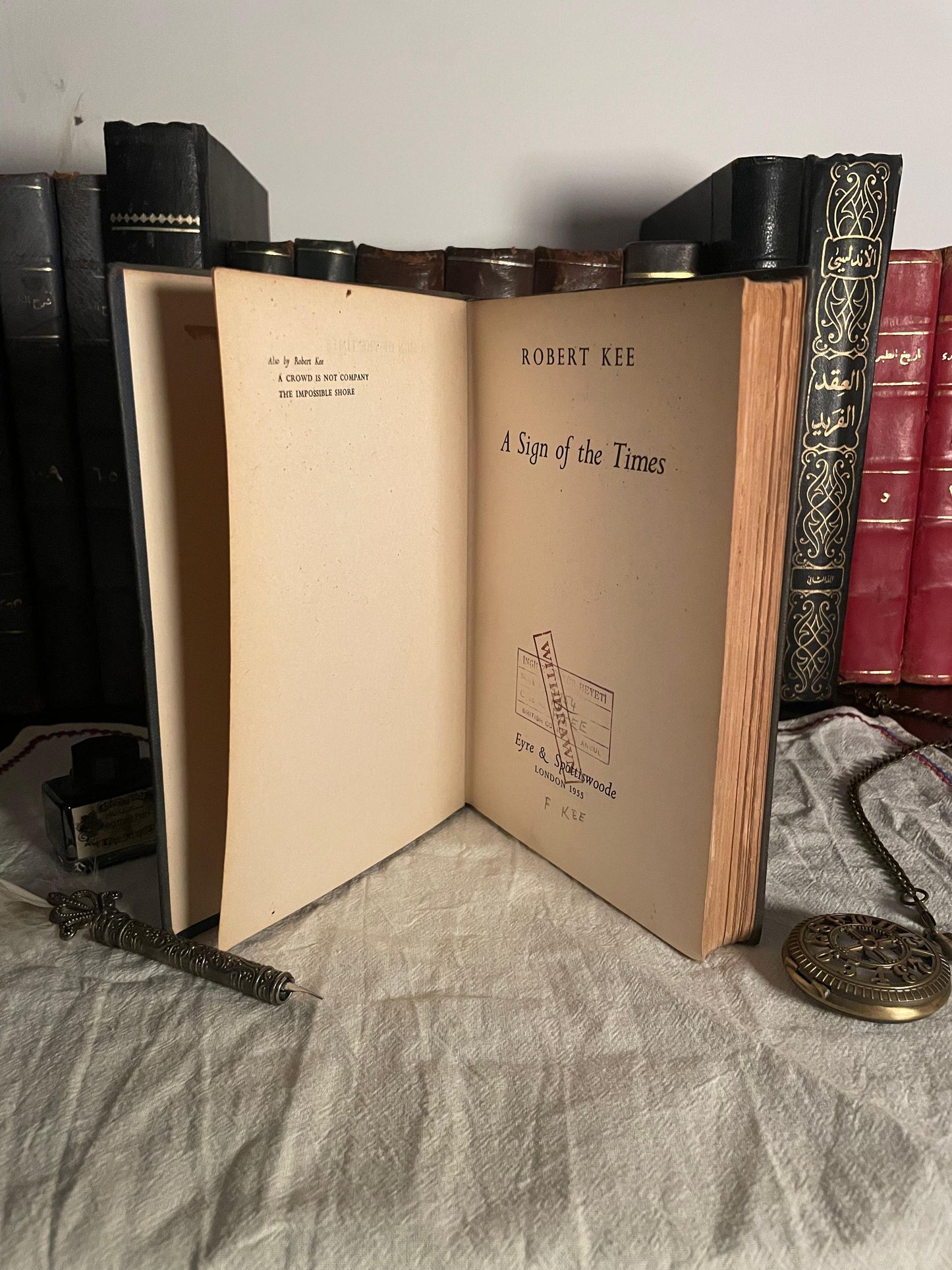Maaktabah
a sign of time - robert kee
a sign of time - robert kee
Couldn't load pickup availability
After a short, nuclear World War Three, a regimented dystopia – primarily governed by IGRAMP, the Inter-Governmental Regroupment Agency for Maladjusted Persons – has taken over.
“Welcome to IGRAMP,” says an official to Victoria Partridge on the first morning of her arrival as a secretary at its headquarters. Victoria is to experience IGRAMP in its more comic and ludicrous aspects, although the effect of such an experience on a young girl looking for a vocation is bewildering and disheartening.
It is Leo Trafford, a middle-aged London ex-newspaper editor, who experiences the sinister side of IGRAMP, and without ever once stepping inside the palatial walls of its headquarters. For the idea of “regroupment” lends itself to abuses on the part of governments. Who is to say who is “maladjusted” or sick in our times? Was Leo sick when he first began to suspect that he was being watched? Was he a traitor because he refused to accept society’s diagnosis? Or did the sickness, as suggested by the scandal caused by one individual’s resistance, really lie somewhere else?
A Sign of the Times is on one level a thrilling suspense story set against as funny a description of our post-war scene as any we have yet had from an English writer. But underlying the excitement of the plot and the humour is a deep disturbing note. Mr. Kee’s theme is one with which all contemporary writers are more or less concerned. Where he is different is that he has treated it with vigour and optimism which makes A Sign of the Times, in spite of the individual tragedies which befall some of its characters, one of the most hopeful books that have appeared since the war.
Praise for Robert Kee:
“Unlike many novelists of the post-war period, [Robert Kee] appears to possess a natural gift.” – Peter Quennell, Daily Mail
“His prose is simple and direct but never dull.” – Francis Wyndham, Observer
“This author has something more to offer than a crisp style and alert observation.” – The Times Literary Supplement
Born in 1919, Robert Kee has a history degree from Oxford and has been writing ever since he left the RAF, in which he was a bomber pilot, in 1946. He has worked for Picture Post, the Observer and the Sunday Times, and has been a literary editor of the Spectator. He has also worked with the BBC and ITV on current affairs programmes and documentaries, and is well known for the award-winning BBC series Ireland: A Television History.


